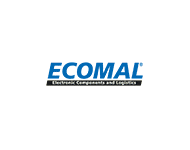Electronics Production |
IPC continues battle for science and facts in EU legislation
In response to the report, “Electronics Without Brominated Flame Retardants and PVC — a Market Overview,” issued by a non-governmental organization (NGO) based in Sweden, IPC is actively refuting statements published in the report.
The report, released by ChemSec this week, contains information that is misleading, incomplete, and misrepresentative of the electronics industry. The report’s release coincides with the European Union’s review of the Restriction of Hazardous Substances (RoHS) Directive. Amendments have been introduced in the EU Parliament to restrict the use of brominated flame retardants under the RoHS Directive.
In refuting the report, IPC is continuing its efforts to seek revisions to the RoHS Directive that are “based on science and result in genuine environmental improvements,” says Fern Abrams, IPC director of environmental policy.
ChemSec’s report, which claims that industry is making wholesale movements away from brominated flame retardants (BFRs), contains misleading statements about the environmental and health concerns associated with BFRs. While some BFRs, such as Polybrominated Biphenyls (PBBs), have been identified as toxic and have been withdrawn from the market, other BFRs, such as Tetrabromobisphenol-A (TBBPA), have been safely used in electronic products for decades. The World Health Organization and the European Commission Scientific Committee on Health and Environmental Risks (SCHER) conducted separate, comprehensive scientific assessments of TBBPA and both found TBBPA to be safe for human health and the environment.
“While the report intends to show that it is technically feasible to remove BFRs from products, it does not provide indication of any environmental benefit in doing so,” says Abrams. The report also fails to identify the alternative flame retardants used and whether they are better for human health and the environment than the BFRs they are intended to replace. Abrams adds, “We reject the report’s implication that the sheer ability to remove BFRs from a specific product proves that the action is beneficial.”
Abrams went on to say that the ability of one electronics company to remove BFRs from a product does not mean that every electronics company is capable of removing BFRs. While some major consumer products OEMs have made the commitment to remove BFRs and PVC from certain products, companies have explicitly stated that the removal of all BFRs and PVC is contingent upon viable alternatives that do not compromise the functionality, safety, and reliability of their products.
While IPC acknowledges, as ChemSec does on its Web site, the importance of “highlighting the risks of hazardous substances,” it does not support ChemSec’s need to “speed up legislative processes,” at the cost of sound science and true environmental benefit. IPC continues to lobby to ensure the RoHS revisions process reflects the needs of the electronics industry and is based on sound science, most recently by contacting a number of influential Members of the European Parliament (MEPs) regarding proposed amendments to the RoHS Directive.






